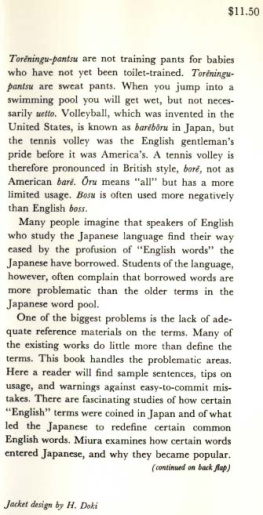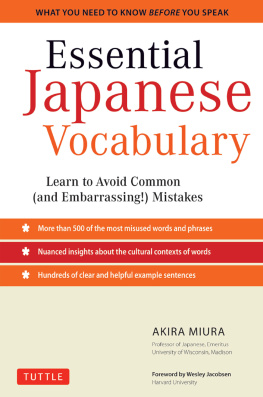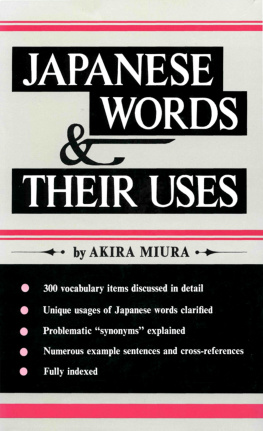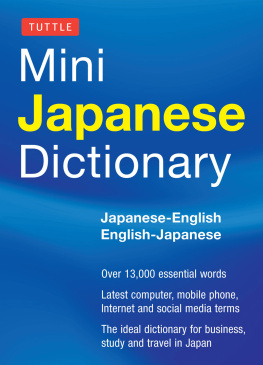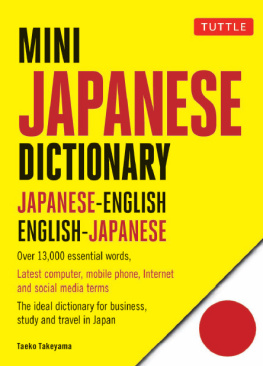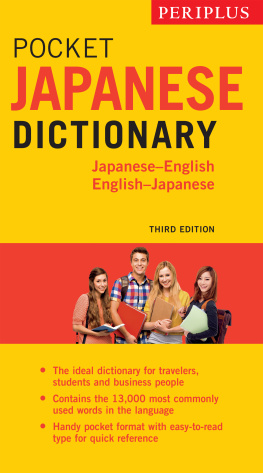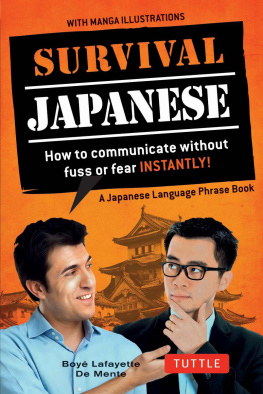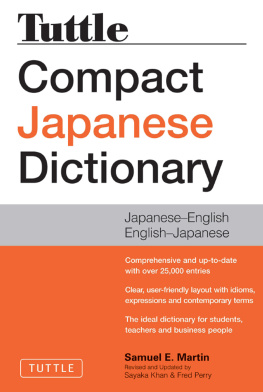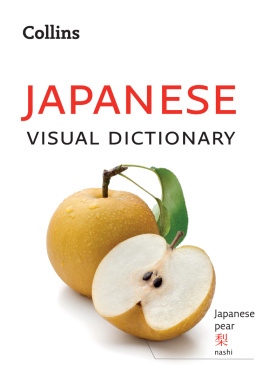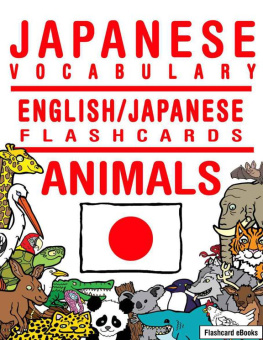Akira Miura - English Loanwords in Japanese: A Selection: Learn Japanese Vocabulary the Easy Way with This Useful Japanese Phrasebook, Dictionary & Grammar Guide
Here you can read online Akira Miura - English Loanwords in Japanese: A Selection: Learn Japanese Vocabulary the Easy Way with This Useful Japanese Phrasebook, Dictionary & Grammar Guide full text of the book (entire story) in english for free. Download pdf and epub, get meaning, cover and reviews about this ebook. year: 2011, publisher: Tuttle Publishing, genre: Detective and thriller. Description of the work, (preface) as well as reviews are available. Best literature library LitArk.com created for fans of good reading and offers a wide selection of genres:
Romance novel
Science fiction
Adventure
Detective
Science
History
Home and family
Prose
Art
Politics
Computer
Non-fiction
Religion
Business
Children
Humor
Choose a favorite category and find really read worthwhile books. Enjoy immersion in the world of imagination, feel the emotions of the characters or learn something new for yourself, make an fascinating discovery.
- Book:English Loanwords in Japanese: A Selection: Learn Japanese Vocabulary the Easy Way with This Useful Japanese Phrasebook, Dictionary & Grammar Guide
- Author:
- Publisher:Tuttle Publishing
- Genre:
- Year:2011
- Rating:4 / 5
- Favourites:Add to favourites
- Your mark:
English Loanwords in Japanese: A Selection: Learn Japanese Vocabulary the Easy Way with This Useful Japanese Phrasebook, Dictionary & Grammar Guide: summary, description and annotation
We offer to read an annotation, description, summary or preface (depends on what the author of the book "English Loanwords in Japanese: A Selection: Learn Japanese Vocabulary the Easy Way with This Useful Japanese Phrasebook, Dictionary & Grammar Guide" wrote himself). If you haven't found the necessary information about the book — write in the comments, we will try to find it.
Toriningu-pantsu are not training pants for babies who have not yet been toilet-trained. Toreningu-pantsu are sweat pants. When you jump into a swimming pool you will get wet, but not necessarily uetto. Volleyball, which was invented in the United States, is known as bareboru in Japan, but the tennis volley was the English gentlemans pride before it was Americas . A tennis volley is therefore pronounced in British style, bore, not as American bare. Oru means all but has a more limited usage. Bosu is often used more negatively than English boss.
Many people imagine that speakers of English who study the Japanese language find their way eased by the profusion of English words the Japanese have borrowed. Students of the language, however, often complain that borrowed words are more problematic than the older terms in the Japanese word pool.
One of the biggest problems is the lack of adequate reference materials on the terms. Many of the existing works do little more than define the terms. This book handles the problematic areas. Here a reader will find sample sentences, tips on usage, and warnings against easy-to-commit mistakes. There are fascinating studies of how certain English terms were coined in Japan and of what led the Japanese to redefine certain common English words. Miura examines how certain words entered Japanese, and why they became popular.
He theorizes on why an unexpected pronunciation developed. In discussing the borrowed terms, the author draws on many linguistic scholars, discusses prevailing beliefs on etymology and pronunciation, and uses his own considerable experience with both English and Japanese to help the student gain control of some of the most problematic words borrowed by J apanese from English . Each of the 850 words discussed under the texts more than 350 main headings is included in a n index for quick reference.
The detail and currency of the explanations contained in this book are unmatched by other books on the subject. For the student hard put to use these borrowed words, this text offers real help.
Akira Miura: author's other books
Who wrote English Loanwords in Japanese: A Selection: Learn Japanese Vocabulary the Easy Way with This Useful Japanese Phrasebook, Dictionary & Grammar Guide? Find out the surname, the name of the author of the book and a list of all author's works by series.

